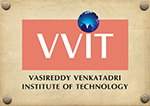ECE DEPARTMENT LABORATORIES
LABORATORY DETAILS
|
S.No |
Programme |
Covered area in sq. m. |
Name of the Laboratory |
Total Equipment Cost |
|
1 |
U.G |
135 |
Electronic Devices and Circuits Lab |
8,77,063.00 |
|
Electronic Circuit Analysis Lab |
||||
|
2 |
161 |
Pulse And Digital Circuits Lab |
7,88,998.00 |
|
|
IC Applications Lab |
||||
|
3 |
161 |
Analog Communication Lab |
14,22,293.00 |
|
|
Digital Communication Lab |
||||
|
4 |
137 |
DSP & Simulation Lab |
20,86,954.00 |
|
|
Microprocessors & Microcontrollers Lab |
11,41,539.00 |
|||
|
5 |
96 |
Microwave & Optical Communications Lab |
13,09,254.00 |
|
|
6 |
P.G |
87 |
VLSI Lab |
38,02,834.00 |
|
7 |
R&D LAB |
97 |
Research Centre |
23,36,897.00 |
|
Total Area in sq. m. |
970 |
Total Cost in Rupees |
1,37,65,832.00/- |
|
The Department is having well equipped physical laboratories to run the various UG and PG Programs.
Following is the description of laboratories.
1) Electronic Devices and Circuits Lab
This laboratory has licensed software “TINAPRO” to design various electronic circuits like power amplifiers, tuned amplifiers, regulators, oscillators, feedback amplifiers. This lab also has both discrete components and hard ware trainer kits. This lab mainly focuses on the integration of computer aided simulation to circuits and implementing the same in the hardware lab also. This approach has the advantage that the students can compare the results which are obtained in hardware lab with the results of the SPICE models.

3) Analog Communication Lab
The laboratory is established with an aim to train the students in analog transmission/reception of signals and constructing circuits based on analog modulation techniques. In this lab, students also learn programming using MATLAB software.
4) Digital Communication Lab
This laboratory is intended to make students understand the use of digital communication systems in the field of communications. The laboratory is established with an aim to train the students in digital transmission/reception of signals and constructing circuits based on digital modulation techniques like ASK, FSK, PSK, DPSK and pulse modulation techniques like DM and PCM.
5) Pulse and Digital Circuits Lab
Pulse and digital circuits is one of the core areas of electronics and communication engineering and constitutes the basic circuit in most of the electronic applications. This laboratory is intended to make students understand the use of different linear and non linear wave shaping circuits like clippers and clampers, switching characteristics of transistor, basic digital circuits, and various types of multi vibrators, time base generators.
6) IC Applications Lab
This laboratory aims at imparting the knowledge required to design and verify different analog circuits based on operational amplifiers, 555 timers, PLLs etc. 30MHz Oscilloscope’s, 3MHz Function generators and Regulated Power Supplies etc. This laboratory is used to learn the various applications of Analog (Linear/Non-linear) ICs and their application. Also enables them to get familiarity with various linear ICs such as OP Amp (µA741) and Timers (SE/NE 555), Designing of clipper & clamper circuits, Design of multi vibrators & sweep circuits, ADC and DAC.
7) DSP & Simulation Lab
8) Microprocessors & Microcontrollers Lab

9) Microwave and Optical communication lab
In this laboratory, students are exposed to different microwave active devices such as Reflex klystron and Gunn diode, LED,LASER, passive devices like isolator, circulator, slotted section, directional coupler, horn antenna, attenuator and terminations etc., including frequency meter and VSWR meter for microwave signal parameter measurements. The laboratory is also equipped with fiber optic trainer kits and modules to enable the study of components of an optical communication system. This experience enables students to work on more than radar transmitters and receivers and modern day optical communication links. The applications of the measurements made in Microwave and optical communication lab are broadly in the areas of radar systems, optical communications and satellite communications at microwave frequency in X-band.
10) Embedded Systems Lab/ IoT Lab

11) VLSI Lab

12) Research & Development Lab/Projects Lab
The department takes relevant measures to improve research culture among the faculty. The department is recognized as a Research Centre by Jawaharlal Nehru Technological University, Kakinada. The R&D lab is equipped with Software’s like Mentor Graphics, Xilinx System Edition, Keil uVision4, Arduino, emu8086, MATLAB R2014a, PSPICE student Version, Proteus 8 Professional. This lab is also used by 3rd & 4th Year UG students for research & Project work.





